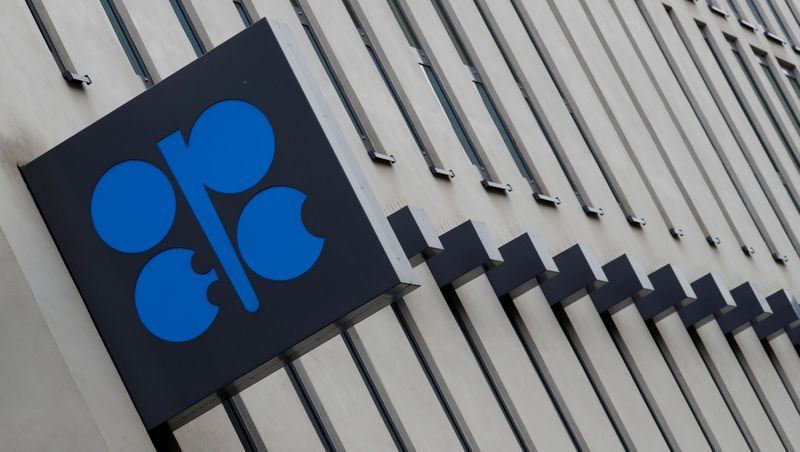By Alex Lawler, Rania El Gamal and Olesya Astakhova
LONDON/DUBAI/MOSCOW (Reuters) - An OPEC+ committee was meeting for a second day on Wednesday to assess the coronavirus' impact on oil demand and global economic growth and how to respond to it.
The Joint Technical Committee advises the Organization of the Petroleum Exporting Countries and its allies led by Russia, a grouping known as OPEC+.
The panel began its meeting shortly after 0900 GMT, an OPEC source said.
Oil (LCOc1) prices have fallen by more than $11 a barrel this year to $55, alarming producers. OPEC+ is weighing further output cuts, extending the duration of existing curbs and possibly moving up a planned policy meeting to February from March 5-6.
Two other OPEC sources said the OPEC+ meeting date was unlikely to be brought forward unless there was general agreement on the need to reduce output further.
"If there is only an extension (to current cuts), then we will meet in March as agreed before," one of the OPEC sources said.
A source familiar with Russian thinking said on Wednesday that negotiations were continuing with OPEC, which wants to reduce output further, and that the discussions were complicated.
Other OPEC+ sources and a industry source familiar with the discussions said on Monday OPEC+ members were considering cutting oil output by a further 500,000 barrels per day (bpd) due to the impact on demand from the coronavirus.
While OPEC countries such as Iraq have voiced support for any agreement that would stabilise the market, Russian Energy Minister Alexander Novak said on Tuesday he could not say for sure whether it was time to tighten output curbs.
Novak said that once the JTC gathering is over, OPEC+ may discuss holding an early meeting.
The economic slowdown resulting from the virus outbreak is expected to reduce 2020 global demand growth by 300,000-500,000 bpd, or roughly 0.5% of global demand, BP (L:BP) Chief Financial Officer Brian Gilvary said on Tuesday.
Oil jumped by more than 3% on Wednesday on media reports that scientists had developed an effective drug against the coronavirus, raising hopes its impact would be limited.
The World Health Organization played down those reports, with spokesman Tarik Jasarevic saying: "There are no known effective therapeutics against this 2019-nCoV (virus)."
OPEC+ has been reducing oil supply to support prices, agreeing in December to cut output by 1.7 million bpd until the end of March.

Saudi Arabia's economy remains reliant on hydrocarbon revenue despite plans to diversify. The kingdom needs prices of around $80 to balance its state budget.